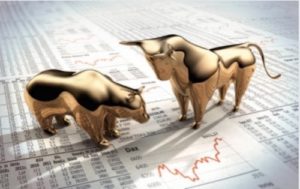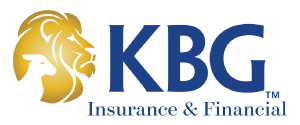
A dividend is a form of payment to shareholders for them owning stock in the company. The money for dividend payments comes from the earnings generated by the company. The board of directors decides the dividend amount for the company. Once decided by the board of directors, the shareholders then approve the dividend.
Annual Dividend Yield
The dividend yield or dividend-price ratio of a share is the dividend per share, divided by the price per share. It is also a company’s total annual dividend payments divided by its market capitalization, assuming the number of shares is constant.
What Determines Eligibility for a Dividend
Typically, all common shareholders are eligible to receive a dividend for holding stocks of a company. The only requirement is that the stockholder purchased the shares before the ex-dividend date.
Stock or Property Dividends
Cash dividends are the most common type associated with stocks, but stock and property dividends also exist.
Stock Dividends
If a company issues a stock dividend, it rewards the shareholders in the form of a larger position in the company. This allows the company to reward shareholders without touching the cash balance of the business. The problem with stock dividends is that it will lower the amount of earnings per share because it increases the amount of outstanding shares.
Property Dividends
Property dividends are the least common form of dividends distributed by companies. They will neither affect the cash balance of the business nor increase the amount of outstanding shares. Rather, property dividends come in the form of physical or financial property. A property dividend distribution may signal a company that can’t afford to pay out cash dividends and cannot dilute its current share position.
For investors involved in property dividends, there may be tax benefits associated with them. This is because taxes can be reduced or deferred on property dividends.
DRIP
Since dividends are a hallmark of passive investment strategies, we must talk about DRIP when we talk about dividends. DRIP stands for dividend reinvestment plan, and it is a means to make dividend investing automated and ultimately more passive.
A dividend reinvestment plan works by automatically reinvesting dividends that you received from stocks back into more of that stock. Over time, your position in the company will slowly increase and the amount of dividends you receive will subsequently increase.
How Often are Dividends Paid
How often a dividend is paid will vary between each individual company. Companies schedule dividends to be paid at different frequencies, either monthly, quarterly or annually.
There is also what is known as a special dividend. Companies pay these either in place of the scheduled dividend, or in addition to a scheduled dividend. They do not happen often, and they are an indicator of a business that is performing exceptionally well.
Important Dates to Keep Track Of
There are several dates that you should keep track of regarding a company’s dividend. These dates will help you determine how much the company will pay in dividends, when you will no longer be eligible, and when the dividend will be paid.
Dividend Announcement Date
The announcement date is when the dividend is announced by the management team of the Company. Following this announcement, the dividend will then have to be approved by a vote from the shareholders.
Ex-Dividend Date
The ex-dividend date is the date in which you have to be holding the stock to receive the dividend. The ex-dividend date comes after the announcement date and after shareholders approve the dividend. It is also important to keep in mind that if you buy a stock on the ex-dividend date itself, you still will not receive the dividend.
Dividend Record Date
The dividend record date is the cutoff marked by the company for those who can receive the dividend. It is typically the day after the ex-dividend date.
Payment Date
The payment date is self-explanatory. This is the day in which the company will send out the dividend payments to its shareholders. The dividend payments will go directly into the shareholders brokerage accounts.
How Do Dividends Affect Stock Price?
Since a dividend is money coming out of a company’s profit, it will affect the stock price. This will have little impact on the investor unless they are high frequency trading or investing in derivatives. The stock price will rise by the amount of the dividend on the announcement date, and stock price will decrease by the amount of the dividend amount of the dividend on the announcement date, and stock price will decrease by the amount of the payment on the payment date.
Why Do Companies Pay Dividends?
Dividends are a way for companies to earn trust among their shareholders and reward those who have invested in the company. Dividends also paint a positive picture of the company’s business and financial strength.
Investors often prefer income stocks that pay dividends as a means to collect passive income. Also, in some jurisdictions, dividends are not counted as taxable income. This would make dividend-paying stocks more attractive to investors who live in those jurisdictions.
If a company is paying its shareholders a large dividend, it can either be an indicator of convincing business performance, or conversely a lack of future business prospects to invest in. For this reason, it is important to look into many factors regarding the business, and not just the size of the dividend when purchasing stocks.
Why do Some Stocks Not Pay Dividends?
In some instances, a company may not pay any dividends to its shareholders. There are a couple of different scenarios where this may become apparent.
A Growth Stock
Growth stocks rarely pay their shareholders dividends. This is because the company’s earnings and revenue are growing at a quick pace, and that money would be better off invested back into the company. This will cause a bigger appreciation of share price. While investing in growth stocks can be a risky strategy, when done correctly it can result in higher returns on the initial investment.
The Company Can’t Pay Their Dividend
If the company is in a tough place financially or the economy is struggling, they may not pay their dividends to shareholders. While this is a tough decision for any business to make, it is sometimes the smart one. If the business is struggling, paying a dividend to shareholders may escalate that struggle and put the business in an even worse situation.
At the end of the day, there are numerous investment strategies that you can implement. It all comes down to the level of risk you want to take and the type of investor you are. Whether you like to day trade or buy and hold like Warren Buffett. Become a student of the game and learn the different strategies. A great book on dividends is The Ultimate Dividend Playbook: Income, Insight and Independence for Today’s Investor
Get in touch today to speak with a Financial Advisor on how we can help you and your family. Give us a call at (509) 242-3244 or visit us at https://www.kbgagency.com/financial-services/
